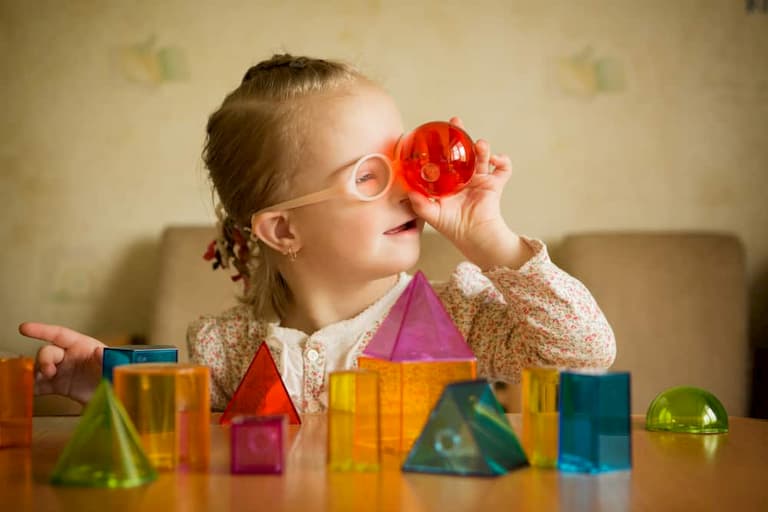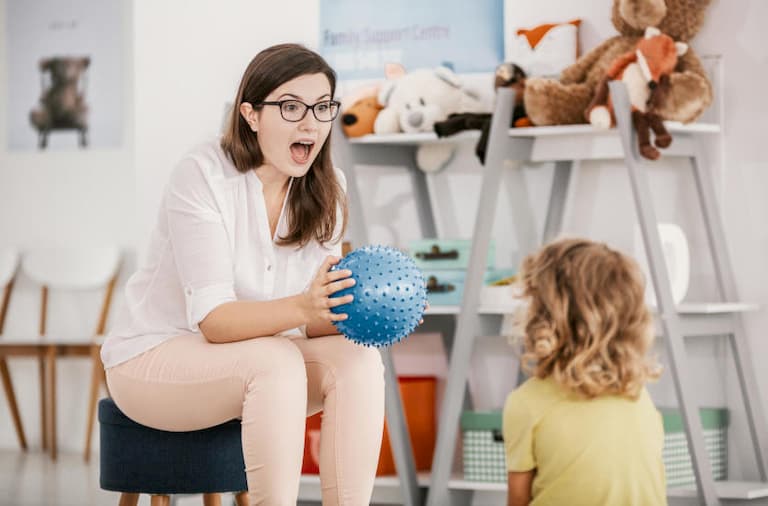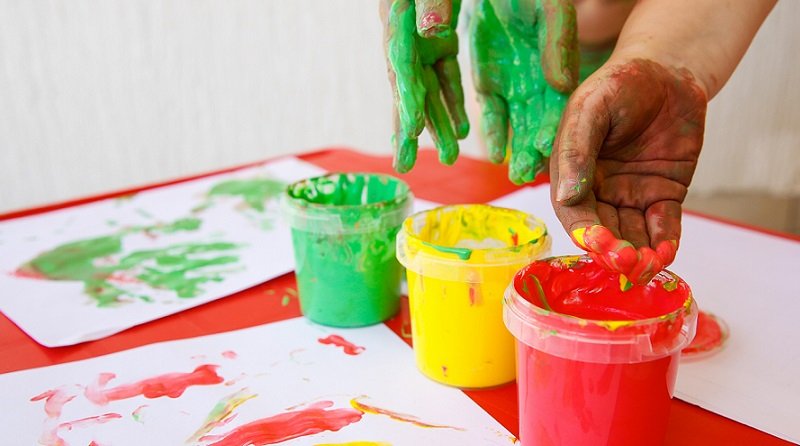Contents [hide]

Sensory play is an important part of the development of kids as it helps them learn how their body works and how to interpret and process their surroundings. Sometimes, conditions such as autism spectrum disorder or Down syndrome pose certain barriers for kids to learn and play, but they can still benefit from sensory play which remains the same for all children. For those who are not familiar with this term, ‘sensory play’ refers to any activity that stimulates the senses. So, the more children use their senses, the more they will develop them and learn how to use them.
So, why is play important for children with special needs?

First, sensory play helps kids to learn. The more senses they use, the more prepared they will be to remember and recall information later. When kids use special needs toys and describe them or engage in some sensory play activity, they gain an understanding of the words they use, helping them develop a more descriptive and rich vocabulary. Also, sensory play promotes social interaction. It naturally entices children to come close and investigate, which is one of the first steps to interaction. Last, but not least, during sensory play, children of all abilities can experience the development of their motor skills. Whether they are drawing circles or making waves in the water – they are strengthening their muscles which will further help them with some basic daily activities like brushing their teeth or zipping their jacket.
The importance of the appropriate play activities and toys
When your kids engage in a sensory play activity or use special needs toys, you should consider what they can learn from them and how will they will experience them. For instance, kids who are visually impaired or blind may not get a lot of value from the different shadows of green crayon on white paper, but they will greatly benefit from and enjoy colouring on differently textured paper like scratchy, corrugated or bumpy paper. Children who have hearing problems or are completely deaf may miss the verses in a song, but they can feel the beat of the drum and vibrations of kazoos and whistles. Since these kids can’t hear the music you should try and help them feel it.

Kids with physical limitations may find it difficult to follow intricate paint with different patterns but they can be quite successful in creating masterpieces with stamps and washable stamp pads. Kids who deal with sensory processing issues are little trickier as some of them have very high while others have very low sensitivity to sensory stimulations. If your child needs more stimulation, you can let him/her use the fingers while painting instead of a brush as this will help him/her feel the coolness and movement directly. For overly sensitive children, consider rubber gloves for finger painting so that they can experience how the colours move and mix together without getting any paint on their hands.
How to choose special need toys?
- There are plenty of toys for special needs toddlers love on the market. For example, for kids with cerebral palsy who have poor motor skills, switch-activated toys are more helpful, while for kids with autism – toys that promote sensory movement can be very helpful. When looking to buy toys for children with special needs, it is important to choose the proper ones as you don’t want to give these kids toys that will frustrate them.
- To avoid frustration, there are some important things you should keep in mind. For example, which of the five senses does the toy appeal to? Will your kid be able to activate the toy by himself/herself? Does the toy feature adjustable height or volume? Is it durable, well constructed and safe for your child’s intellectual age? Is it interesting and appealing for your kid? Is it right for your child’s physical capabilities, mental and social development? Is it breakable, fragile or contains any toxic materials?
- Consider what sort of sensory stimulation does the toy provide? Do you want to introduce more or less stimulation into playtime? What kind of challenge factor does the toy provide? Kids with disabilities can greatly benefit from a toy that offers a different level of challenge, allowing them to build different skills and confidence. How the given toy can help your child to move toward specific social, physical and emotional goals? These questions are very important and answering them can greatly help in your choice of the right special needs toy.
Adaptive toys can be very rewarding and fun. When your child finds a certain toy interesting to play with, he/she is learning and improving some of the skills he/she may miss. Toys are designed for kids to learn and play with, but when it comes to buying toys for a special needs child, you have to be more careful in your selection.

